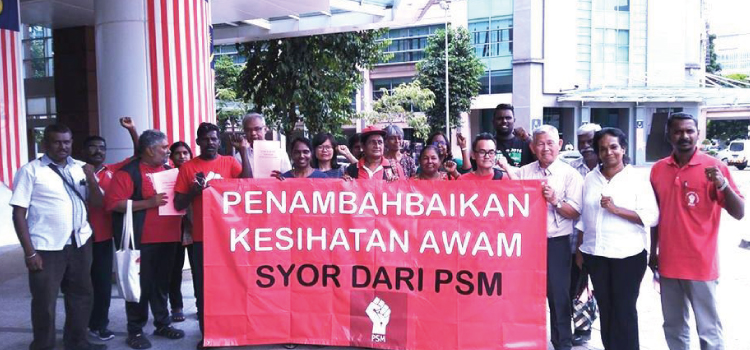The core focus of the provision of healthcare for the people of Malaysia has shifted since the colonial era up to today.
In the 1950’s provision of healthcare was considered a right for every citizen and the government was duty bound to provide this basic right. Malaysian healthcare system in the early days were considered to be one of the best in the region with exemplary universal antenatal care, immunization for children, tuberculosis treatment program, malaria control and many more. This led to the World Health Organization honoring Malaysian healthcare as a model system in the 1960’s and 70’s.
Unfortunately, well after the 1990’s, with the inception of the 4th Prime Minister, Dr Mahathir Mohamad neoliberal school of thought seeped into the healthcare providers. It was held that the free market is the most efficient provider of any services including healthcare. The current state of affairs are worrying;
- Through various privatization policies, this has led to a huge brain drain of specialist doctors form the public sector to the more lucrative private sector;
- The public sector has only 30% of the total specialist doctors in the country but they cater to 70% of the patients from the population, while the private sector has 70% of the doctors whom only deal with 30% of the patients;
- The setting up of private wing for full paying patients in public hospitals has only made the situation worst, as the remaining 30% specialist doctors in public hospitals are now given the option to serve in a private wing within the public hospitals building. These private wings further deteriorates the public facilities when well off full paying patients deprive the majority of working class Malaysians by demanding specialist doctors service with their thick wallets;
- Privatization of the government medical store, has led to higher drug prices for the Hospitals, and they are forced to cut supply to manage their allocations;
- Privatization of hospital essential services, such as cleaning, laundry, maintenance and security to private sub contractors have not only deprived the janitors and workers of their rights but also increased operational cost for the hospitals;
- Lack of beds and facilities in government hospitals, unable to cater to the increasing number of patients. Patients in wards exceeding number of beds and staff capacity to provide quality care, Long queues for treatments, angiograms, surgeries. Increasing the risk of in-ward infections;
- Increasing cost of prosthetics and implants. Even though entry treatment for Malaysians in government hospitals is charged minimally, but cost of all other accessories and even some additional medications have to be borne by the patient and their families. The list of subsidized prosthetics and implants has not been updated for a long time, the patients have the burden the cost of these treatments;
- Health budget from government expenditure has been slashed continuously. This has to further deterioration of public healthcare services.
The PSM puts forward a people first healthcare program, reverting back from the neoliberal mindset dominating our current policy makers and bureaucrats. We propose the following;
- Healthcare as a right; thus, all are entitled to free quality healthcare in the public sector, leaving no one behind;
- Increase the government healthcare budget to 4% of the GDP;
- Urgently revamp public hospitals doctors’ remuneration scheme, better pay, improved working conditions for doctors, nurses and other health service workers. Create a separate service commission for Public Sector Healthcare workers;
- Freeze the expansion of private hospitals, medical centres to prevent the brain drain of specialist doctors to private sectors;
- Prevent cost leakages in operation cost through privatization of drug store, subcontracting of hospitals essential services that can be done directly under the government’s management like before;
- Build more fully equipped General Hospitals in key cities, like KL, Selangor, Johore, Perak, Penang to cope with the increasing demand from growing urban population and across the country to overcome overcrowding problems;
- Increase investment and research in mental health facilities;
- No discrimination in charges and services for migrants and refugees.
